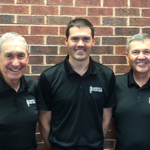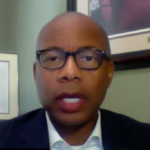December tornado triggers disaster recovery plan
Arcadian Bank President Mark Heinemann wasn’t expecting a tornado to strike less than two weeks before Christmas. Though the unseasonably warm day brought the potential for severe weather, it was Dec. 15, nearly one month after the previously recorded latest date for a tornado touchdown in the state. As night fell, conditions worsened. Heinemann, sitting in the basement of his Albert Lea, Minn., home near the Iowa border and approximately 20 minutes away from the Albert Lea-based bank’s Hartland branch, wasn’t worried. [Continue]










